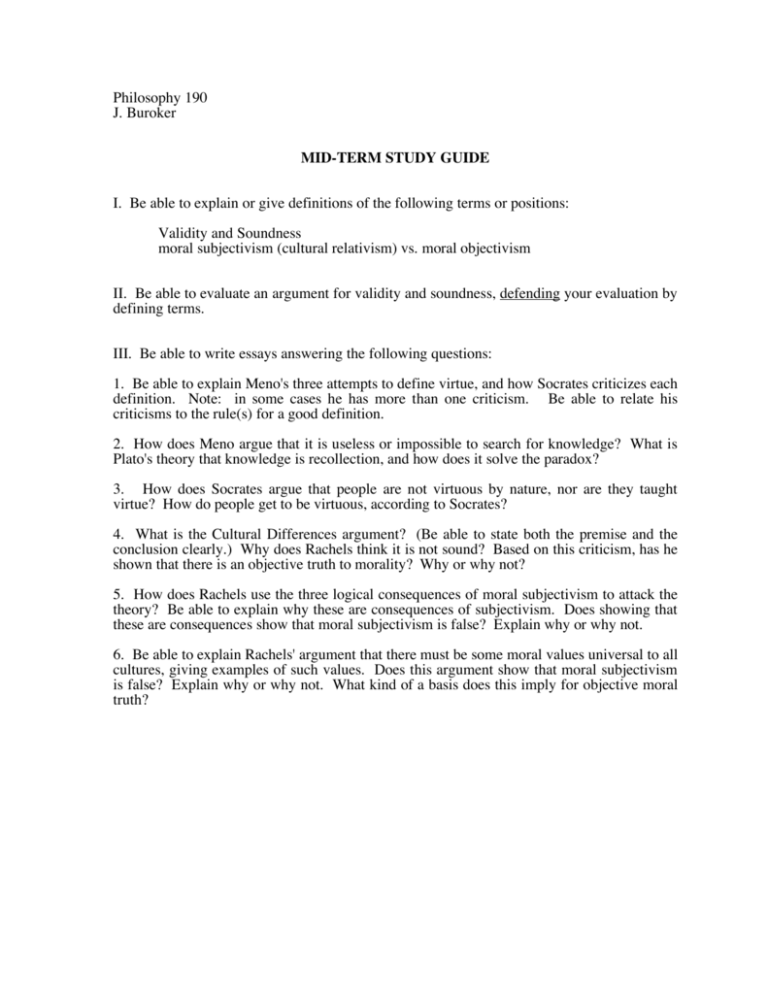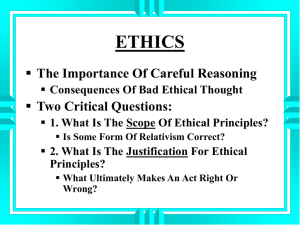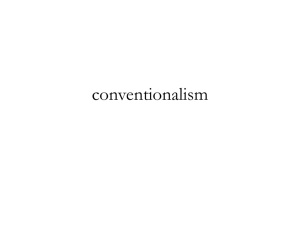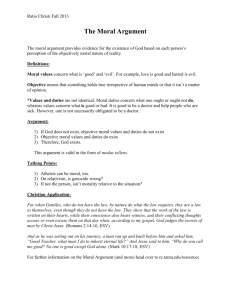Philosophy 190 J. Buroker MID-TERM STUDY GUIDE I. Be able to
advertisement

Philosophy 190 J. Buroker MID-TERM STUDY GUIDE I. Be able to explain or give definitions of the following terms or positions: Validity and Soundness moral subjectivism (cultural relativism) vs. moral objectivism II. Be able to evaluate an argument for validity and soundness, defending your evaluation by defining terms. III. Be able to write essays answering the following questions: 1. Be able to explain Meno's three attempts to define virtue, and how Socrates criticizes each definition. Note: in some cases he has more than one criticism. Be able to relate his criticisms to the rule(s) for a good definition. 2. How does Meno argue that it is useless or impossible to search for knowledge? What is Plato's theory that knowledge is recollection, and how does it solve the paradox? 3. How does Socrates argue that people are not virtuous by nature, nor are they taught virtue? How do people get to be virtuous, according to Socrates? 4. What is the Cultural Differences argument? (Be able to state both the premise and the conclusion clearly.) Why does Rachels think it is not sound? Based on this criticism, has he shown that there is an objective truth to morality? Why or why not? 5. How does Rachels use the three logical consequences of moral subjectivism to attack the theory? Be able to explain why these are consequences of subjectivism. Does showing that these are consequences show that moral subjectivism is false? Explain why or why not. 6. Be able to explain Rachels' argument that there must be some moral values universal to all cultures, giving examples of such values. Does this argument show that moral subjectivism is false? Explain why or why not. What kind of a basis does this imply for objective moral truth?











